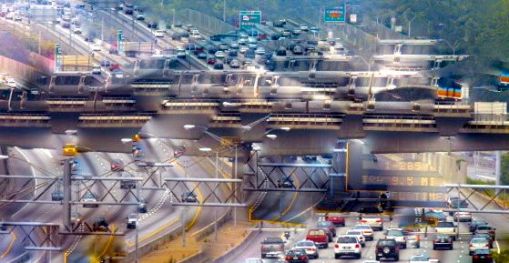The stretch of highway that arcs along the northside of Atlanta is known locally as the Perimeter. It is one of the busiest traffic corridors in the world, with over two million commuters on an average day. On a night when I was driving home, a pair of international students in a U-Haul moving truck sideswiped me. My car went from lane fourteen to lane one, and I spun three complete revolutions. For the next three weeks I was literally afraid to drive.
Three weeks on the sidelines is not a tragedy. But it was disabling. Being a carless Boomer in Atlanta is akin to being a Millennial without an internet connection. We’d rather sacrifice our sense of smell. And yet there is no better opportunity to learn about disability than living with it. The unfamiliar limitations. The dependency. The social isolation. It soon became clear I was going to need help with tasks as basic yet vital as grocery shopping. Public transportation and buying ice cream are not compatible. Not when making connections. Also, the shoulder pain I experienced on my right side taught me how right-hand biased our architecture can be. And why do we need to have so many doors inside, anyway?
I recalled the Buddhist refrain: “I cannot cover the world in leather but I can wear shoes.” In this case, I had to learn better ways to ask for help. Here’s what I gleaned:
- Having easy access to resources encouraged me to think big. When asking for help it is better to think small. If I can divide a project into ten tasks, and ask different people to help with each one, the odds of success improve. A burden shared is halved.
- Building a network of friends and colleagues takes steady investment in the relationship economy. If I am already talking to you every day, asking for help (or offering it) becomes organic.
- Teamwork is about leaving no one behind. It is an insurance policy. Teams help mitigate the worst-case scenario.
- Revisit the process. The solo way of doing it may not be the best way for a collective.
- People want to be helpful. It feels good. So ask that person who may feel left out. Let them feel the honor of your trust.
In the wake of the car accident, I realize how lucky I am that I am not spending the rest of my life in a wheelchair. Also, I was able to overcome my vehophobia after three weeks, while others have it permanently. https://en.wikipedia.org/wiki/Driving_phobia But equally important is the takeaway that any of us could find ourselves disabled. We don’t have to be born into it. We all have the potential to qualify. So it is truly in our interest to recruit all of humanity onto our team. We could be just a sideswipe away from needing that support.
As always, I welcome all comments.
Jason Berman
